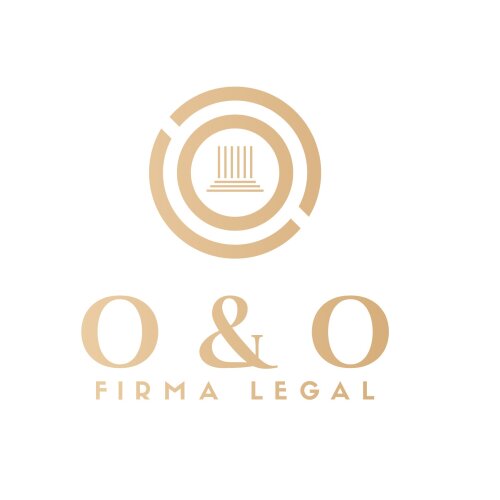Best E-commerce & Internet Law Lawyers in Bolivia
Share your needs with us, get contacted by law firms.
Free. Takes 2 min.
Or refine your search by selecting a city:
List of the best lawyers in Bolivia
About E-commerce & Internet Law in Bolivia
E-commerce and Internet Law in Bolivia is a rapidly evolving field, shaped by global digital trends and localized legal frameworks. As the Internet and online commerce continue to grow, Bolivian law is adapting to address issues like digital transactions, consumer protection, data privacy, and online contracts. The legal environment for e-commerce in Bolivia is defined by national regulations that aim to promote digital business while ensuring consumer rights and cyber-security.
Why You May Need a Lawyer
Legal assistance in E-commerce & Internet Law can be crucial for several reasons. Some common situations include:
- Starting an online business and needing guidance on compliance with Bolivian regulations.
- Dealing with privacy and data protection issues as a result of digital business activities.
- Resolving disputes related to online contracts or transactions.
- Protecting intellectual property in the digital realm.
- Navigating the complexities of taxation on digital goods and services.
- Understanding consumer rights and obligations in an online context.
Local Laws Overview
The key aspects of E-commerce & Internet Law in Bolivia that individuals and businesses should be aware of include:
- Consumer Protection: Regulations ensure consumers are protected from unfair practices in online sales.
- Data Protection: Laws dictate how businesses must handle personal data and privacy issues.
- Electronic Transactions: Legal status of electronic contracts and signatures is established and recognized.
- Intellectual Property:Protection of digital content and copyrights in the online space.
- Cybersecurity: Rules and policies aimed at preventing and addressing cybercrime.
- Taxation: Digital goods and services are subject to specific tax provisions.
Frequently Asked Questions
What is the legal status of e-signatures in Bolivia?
E-signatures are legally recognized in Bolivia, provided they meet certain security and verification standards.
How are consumer rights protected in Bolivian e-commerce?
Consumer rights in Bolivia are safeguarded through legislation that demands transparency and fairness in online transactions.
Are there any specific regulations for digital service providers?
Yes, digital service providers must comply with data protection regulations and ensure secure transactions.
What should I do if I have a dispute over an online purchase?
First, contact the seller for resolution. If needed, seek legal advice or contact consumer protection agencies.
How does Bolivia regulate personal data protection in e-commerce?
The country enforces data protection laws that require businesses to handle personal data responsibly and transparently.
Is my digital content automatically protected under Bolivian law?
Yes, but registering copyrights may offer additional legal protection and enforcement options.
What taxes apply to e-commerce in Bolivia?
E-commerce businesses must comply with VAT and other relevant taxes on digital goods and services.
How do privacy laws affect e-commerce in Bolivia?
Businesses must inform users about data collection practices and obtain consent for using personal information.
What steps can I take to secure my online business legally?
Ensure compliance with all relevant laws, use clear terms and conditions, and implement strong cybersecurity measures.
Where can I find authoritative legal texts about Bolivian Internet laws?
Official government websites and legal databases provide access to detailed legal texts and updates.
Additional Resources
To keep informed and obtain legal help, consider the following resources:
- Bolivian Ministry of Justice: They provide information and legal resources about e-commerce laws.
- Consumer Defense Agency: Offers support and handles consumer complaints regarding online transactions.
- Local Legal Firms: Specialized law firms can provide personalized legal advice in e-commerce and internet law.
Next Steps
If you need legal assistance, consider the following steps:
- Identify the specific legal issue you need help with related to e-commerce or Internet law.
- Consult with a lawyer who specializes in Bolivian e-commerce and Internet law to discuss your situation.
- Gather necessary documentation related to your case or issue to streamline your legal consultation process.
- Stay informed about changes in the legal landscape that might affect your online activities in Bolivia.
Lawzana helps you find the best lawyers and law firms in Bolivia through a curated and pre-screened list of qualified legal professionals. Our platform offers rankings and detailed profiles of attorneys and law firms, allowing you to compare based on practice areas, including E-commerce & Internet Law, experience, and client feedback.
Each profile includes a description of the firm's areas of practice, client reviews, team members and partners, year of establishment, spoken languages, office locations, contact information, social media presence, and any published articles or resources. Most firms on our platform speak English and are experienced in both local and international legal matters.
Get a quote from top-rated law firms in Bolivia — quickly, securely, and without unnecessary hassle.
Disclaimer:
The information provided on this page is for general informational purposes only and does not constitute legal advice. While we strive to ensure the accuracy and relevance of the content, legal information may change over time, and interpretations of the law can vary. You should always consult with a qualified legal professional for advice specific to your situation.
We disclaim all liability for actions taken or not taken based on the content of this page. If you believe any information is incorrect or outdated, please contact us, and we will review and update it where appropriate.
Browse e-commerce & internet law law firms by city in Bolivia
Refine your search by selecting a city.









